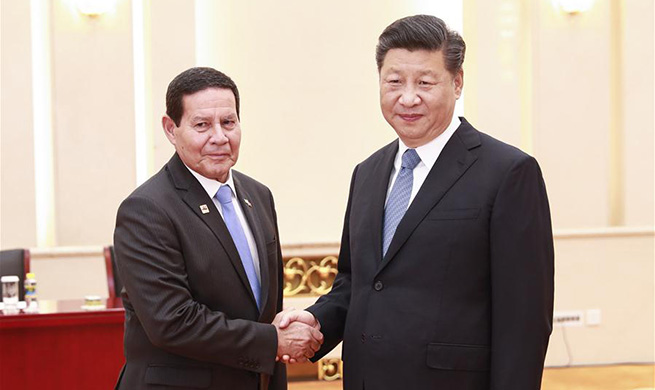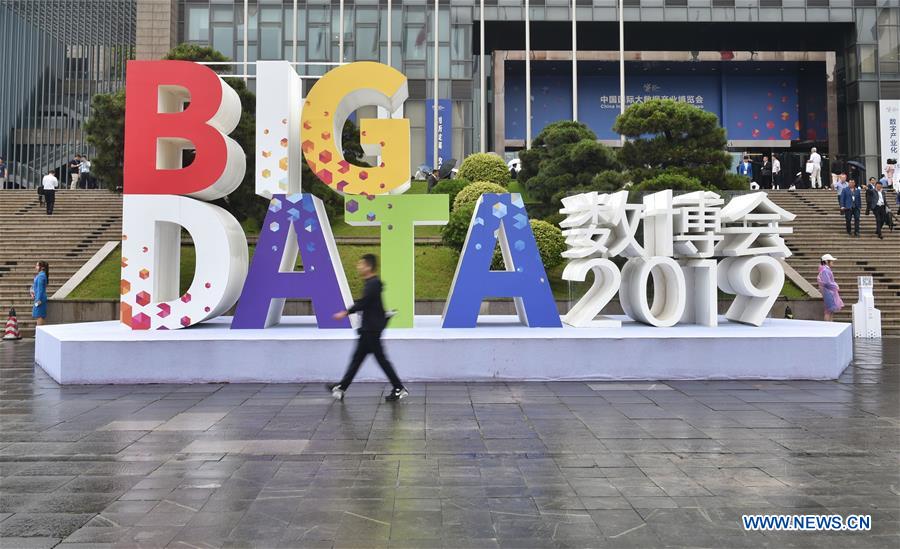by Xinhua writer Yao Yuan
BEIJING, May 26 (Xinhua) -- Science fiction carries an important mission of revving up the scientific spirit and interest in China, a senior official with the China Association of Science and Technology (CAST) has said.
Speaking at the just-concluded Another Planet Science Fiction Convention, Bai Xi, head of the CAST's department of science popularization, praised Hugo Award winner Liu Cixin and other Chinese writers for setting off a sci-fi fever that is inspiring the nation's youth.
Bai highlighted the important role of sci-fi in popularizing science, especially as China strives to become an innovative country.
"Science fiction is entrusted with promoting the scientific spirit and thinking in society," he said in a speech to sci-fi writers and fans attending the event in Beijing.
The official said only 16.1 percent of Chinese children wish to become scientists when they grow up, citing a People's Daily survey, a figure he said was even lower than the 22 percent in 1978.
China has set the goals of pushing the scientific literacy rate from 8.47 percent in 2018 to 10 percent by 2020, and to reach an advanced level globally by 2035, and a leading position by 2050, according to Bai.
"To complete this challenging task, we can't just rely on those specializing in science popularization. We are inviting writers, artists and even the 91 million science and technology practitioners to join this cause," Bai said.
There is evidence that China is ushering in a sci-fi boom and quickly leaving behind eras when the literary genre was given short shrift as children's reading or even condemned as pseudo-science.
The Chinese market for sci-fi literature reached 900 million yuan (130 mln U.S. dollars) in the first half of 2018, nearing the yearly total of 970 million yuan in 2017, while the sci-fi box office in the same period of 2018 reached 9.5 billion yuan, said a report by the Shenzhen-based Southern University of Science and Technology.
Earlier this year, China-made sci-fi blockbuster "The Wandering Earth," adapted from Liu Cixin's same-name short story, ignited a nationwide cinema-going craze. With a box office of about 690 million U.S. dollars, it has become the country's second highest-grossing film of all time.
GOLDEN AGE COMING TO CHINA?
Like other Chinese sci-fi conventions and fan gatherings that began to attract more attentions from the general public and the industry, the Another Planet Science Fiction Convention was packed with young aficionados, reporters and venture capitalists.
The groundswell of public interest in sci-fi has been partly attributed to the recent stream of scientific breakthroughs achieved by China amid a tech boom, including sending the first probe and rover to the far side of the moon earlier this year.
At the convention, there were discussions whether the sci-fi "Golden Age," which saw the rise of many sci-fi heavyweights like Isaac Asimov and Arthur Clarke between the 1940s and the 1960s, may take place again in China.
If history is any guide, the bloom of sci-fi literature and industry has accompanied the modernization of countries like Britain and the United States, said Liu, who predicted a similar boom in China.
"In today's China, the future denotes vast changes of the present. This strong sense of future is a fertile land for the growth of sci-fi," said the author of "The Three-Body Problem" at the conference.
"It is now an ideal era for pondering on the relations between man and technology, but we should also guard against the dangerous trend as fast changes make people numb about technology," said Ji Shaoting, founder of Future Affairs Administration, an incubator for sci-fi writers and organizer of the conference.
The two-day Another Planet Science Fiction Convention that concluded Sunday has attracted China's leading sci-fi writers including Han Song, Wang Jinkang and Chen Qiufan, as well as an international line-up including Michael Swanwick and Allen Steele from the United States, Kelly Robson from Canada, and Taiyo Fujii from Japan.

















